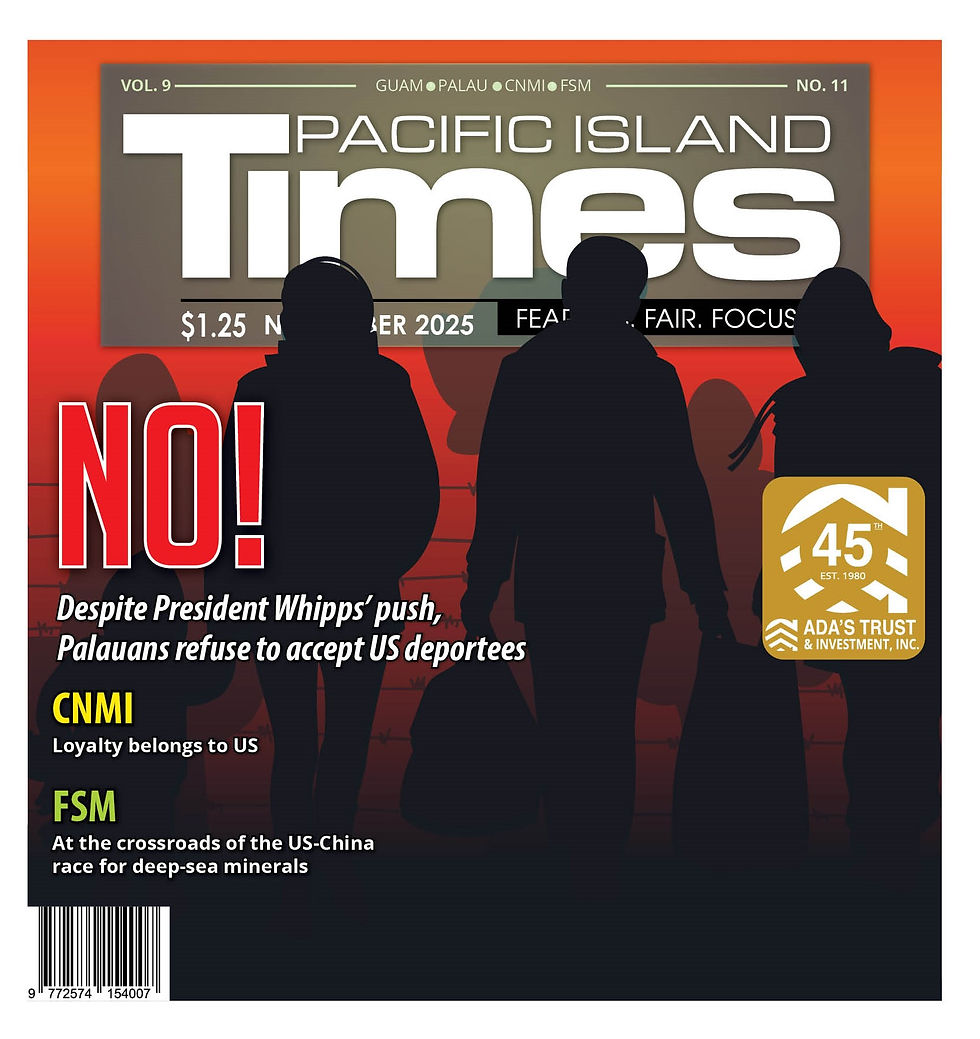Study: NZ-born Pacific islanders burnt out by work and family obligations
- Admin

- Nov 28, 2025
- 2 min read

By Pacific Island Times News Staff
New Zealand-born Pacific islanders are overstressed by work and family obligations, according to a new study published in the Journal of Racial and Ethnic Health Disparities.
Asetoa Sam Pilisi, a doctoral candidate at the University of Auckland who led the study, said the findings indicated the urgent need for workplace and policy reforms that recognize the unique cultural context of Pacific communities.
The survey, conducted online with 1,092 participants, found that nearly 90 percent reported experiencing burnout, with almost half (49.4 percent) experiencing burnout repeatedly.
The key findings show that work-life was the primary source of burnout for 50.3 percent of respondents, followed by family duties (28.4 percent).
The research, co-designed with the Wayfinding Steering Group, a collective of NZ-born Pacific community members, is the first large-scale quantitative study to examine burnout among NZ-born Pacific adults aged 18–65 years.
“Responsibilities that prevented adequate sleep, exercise or healthy eating significantly increased the odds of burnout," said Pilisi, from Waipapa Taumata Rau.
However, the practice of service, a deeply rooted cultural practice highlighted "financial giving with little-to-no boundaries," was also a major determinant.
Burnout frequency was highest among young adults aged 25-34, suggesting a period where cultural, professional and family demands peak.
Pilisi said the study indicated that burnout among Pacific peoples is not just about workload; it’s about the cultural and structural realities we live in.
"Pacific communities often prioritize collective well-being over personal needs and while that’s a strength, it can come at a cost to health when boundaries are blurred,” he said.
“We need interventions that respect Pacific values while creating space for self-care. These things can co-exist. This means workplaces acknowledging family responsibilities, and families and communities supporting healthy boundaries without guilt."
Pilisi said caregivers shared their experiences at workshops, where many Pacific islanders found their common denominator.
"Fulfilling family responsibilities and cultural obligations are important. But sometimes we’re so fixed on the problem that we don’t see the richness in our own families, or the things that are actually working well," Pilisi said.
“People give so much of themselves, risking burnout without realizing the impact on their own well-being. As families and communities, we need to lift the stigma associated with looking after ourselves. Understanding that our personal health matters is crucial. ”
The study recommended that employers and policymakers adopt flexible work arrangements, culturally informed well-being programs and support systems that acknowledge family and community obligations.
"Addressing burnout through systemic change will help sustain Pacific workforce participation and improve overall health outcomes," Pilisi said.
Subscribe to
our digital
monthly edition
.






